MARION MICHELL
1958
United Kingdom
CHANGELINGS. 2010-2011. Wool, silk, crochet
Years ago I bought an old pair of children’s shoes on a flea-market in Berlin. They looked like two of a pair: same make, same leather, similar degree of wear and tear, but the left shoe was remarkably bigger than the right one.
The shoes moved me. They had obviously been worn extensively and repaired and repaired, with tears and cracks in the leather and tiny nails hammered in their soles. The way their confident asymmetry was so perfectly wed with two-of-the-kindness, without making a ‘proper’ pair, pierced me. But what derailed me is their link to war-time, fascism in Germany.
I remembered my cousin Edith for the first time in decades. Edith was five years older than I and died at 17. We only met a few times when I was small as our fathers had become estranged, but I found her again in a photograph, tiny against the mass of happy relatives: Whitsuntide 1956, my parents’ engagement, the whole family standing in the park. Everyone is smiling; my mother’s face is lit up like I have never seen it. Edith is four years old. She stands there, her little body tense, pressing her hands to her middle as if about to fold in on herself. While some of the women wear sleeveless dresses she wears a heavy coat, with a small round collar; the cuffs of a sweater peek out from its sleeves. Her dark trousers have congealed into a black pedestal for a legless girl. Stern-faced, she looks into the camera: a girl with a hunchback and one foot in a shoe with a high-raised sole.
The crumpled newsprint I found in the shoes was from a German newspaper, 1941. Why were the shoes put aside at this time? Had the child outgrown them? Died? Had she been taken away? German history weighed in. War. The horror of the holocaust; and fascism’s denial of an imperfect body which found its terrifying expression in the elimination of ‘unwertes Leben’, of those who were deemed socially, physically and mentally unfit, a measure from which children were not excluded. On the contrary, children’s euthanasia was only stopped with the end of the war.
The memory of Edith has impacted on the work I make. My ‘Changeling-pieces’ speak of bodies that buckle under the strain of difference, and draw their lifeblood from it. They are simple, diminutive, absurd, have pathos and humour. They seem inhabited – each made a clamour in my head, waiting to be made.

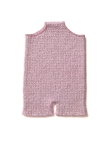
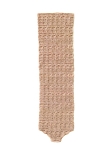
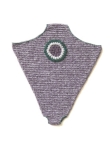
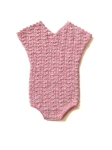
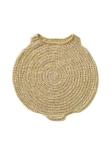

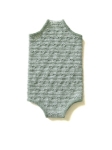





2 Responses to Michell, Marion
Marion Michell
Replied on: %A %B %e%q, %Y, %I:%M %p
The second paragraph here should read:
“The shoes moved me. They had obviously been worn extensively and repaired and repaired, with tears and cracks in the leather and tiny nails hammered in their soles. The way their confident asymmetry was so perfectly wed with two-of-the-kindness, without making a ‘proper’ pair, pierced me. But what derailed me is their link to war-time, fascism in Germany.”
Awaiting correction.
Marion Michell
Replied on: %A %B %e%q, %Y, %I:%M %p
Thank you for the correction!